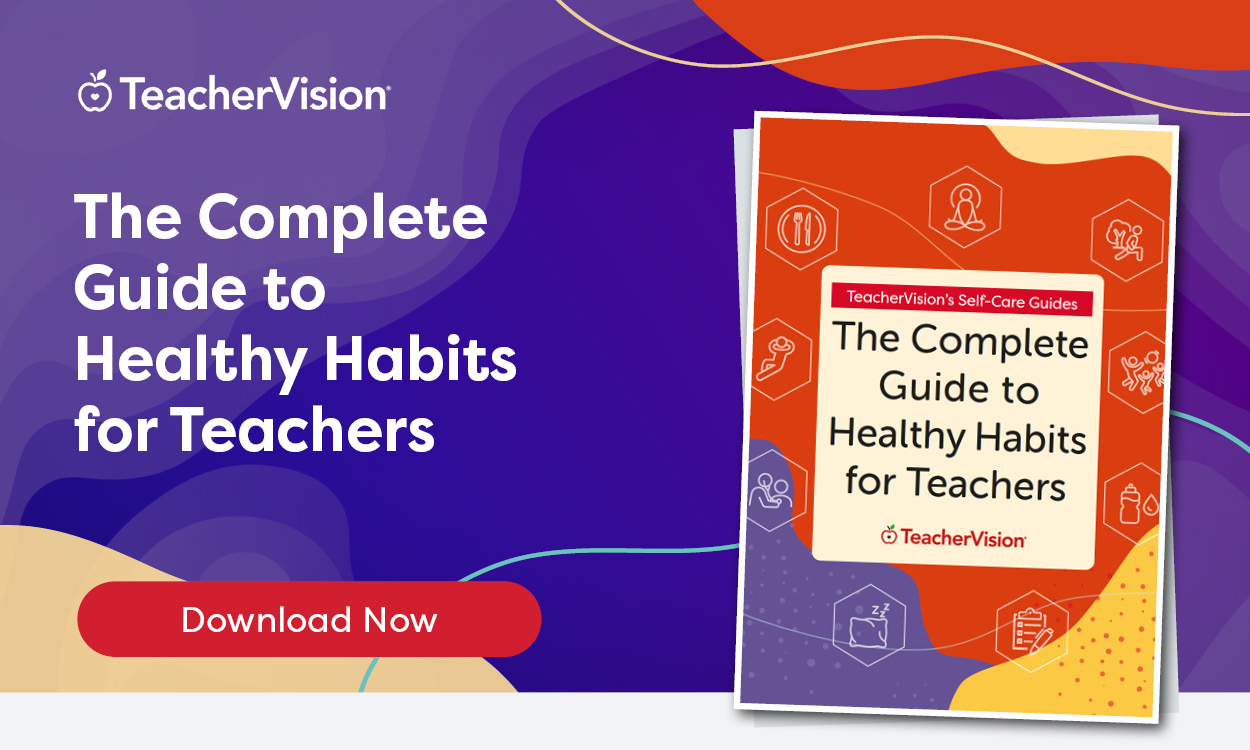1. Organization
There’s no way around it; an effective teacher is an organized one. Teaching several classes in a middle school or high school setting or several subject matters in a primary school environment requires a lot of lesson plan juggling, the study of pedagogy, curriculum mapping and, whether we like to admit it or not, paperwork. Having organized systems in place for all spinning plates is imperative for the teacher’s well-being and directly impacts their efficacy in the classroom. Plenty of online systems and platforms provide the ability to organize scheduling and paperwork. Still, if you’re in the percentage of educators who need to write things down by hand, we have the exact resources you need for peak classroom organization.
2. Clear Communication
Students operate best when they know exactly what is expected of them. The same is true for adults. Cultivating a positive learning environment is a quality of an effective teacher who is also always a great communicator. Writing learning objectives, essential questions, and a basic agenda on the physical board in class or on the LMS or class website of your choice is the best way to communicate expectations. The effective teacher uses rubrics, provides guidelines and adapts study guides to assist in clear communication. Having clear and effective communication increases student engagement as they are not left guessing what you want from them and are more confident to ask questions, which only perpetuates student progress. The best teachers are great communicators.
A successful teacher knows that their students must know and trust them for them to get the most out of their teaching skills, teaching methods and the learning experiences they’ve created for them.
3. Adaptability
If you’re in your first year of teaching or a twenty-year veteran, you know that sometimes things don’t go according to plan. There’s an RSV outbreak in your third-grade class, and you’re missing 3/4 of your students. A fire drill starts right at the start of your AP Literature practice exam.
Great teachers are the best at pivoting, no matter their grade level. Adaptability is a requirement for being a good teacher. Teachers know that how they react and respond to glitches sets the stage for the entire classroom environment of learners. Instructional strategies like always having a backup lesson plan that doesn’t require technology in the event of technological difficulties, always requiring students to bring an independent reading book to class in case of unexpected downtime, or providing built-in opportunities to take the reigns of their own learning by assigning passion projects that can be picked up at a moment’s notice in case of a schedule shift are stellar examples of being adaptable. Using a Time Management Workbook is a great way to document all your plans and backup ideas in one place to keep you extra organized and on top of your game.
4. Empathy
Sometimes it’s easy to fall into viewing the bodies that take up space in desks in your classrooms as simply students. But it’s the teachers who view their students as humans first who are the most effective. Effective teaching isn’t just about academic progress and student success. A successful teacher knows that their students must know and trust them for them to get the most out of their teaching skills, teaching methods and the learning experiences they’ve created for them. Communicating empathy and understanding goes a lot farther than any specific teaching style.
We know from the data that teacher burnout is on the rise and that it will not just go away with a positive attitude and a bubble bath.
5. Self-Assessment
Teachers are accustomed to grading student work but need to become more familiar with assessing themselves. Effective teachers always ask if what they’re doing works for themselves and their students. Self-assessment practices are great for new and veteran teachers. They can be facilitated alone, with a supervisor for guidance, or in a small group of other educators for feedback. Continuously re-evaluating best practices creates the most effective outcomes. You can institute a self-assessment practice at any interval; once at the beginning of the year and once at the end, or every marking period are the most common choices.
6. Self-Care
We know from the data that teacher burnout is on the rise and that it will not just go away with a positive attitude and a bubble bath. We also know that an effective classroom teacher tends to be deeply invested in their self-care and, sometimes, their self-preservation. An effective teacher guards their time, their priorities and holds their boundaries accordingly. They know that to be at their best in the classroom, they have to move their bodies, focus on their breathing, stay hydrated and have a cut-off time for work-related communications. Routines that are built into their daily schedules to uphold healthy habits are imperative for full efficacy. Student learning is their professional goal, but to assist their students in achieving their full potential, there can be no skimping in the self-care category.
If, like most teachers, you need a little more guidance on how to incorporate self-care into your busy schedule, check out this Complete Guide to Healthy Habits for Teacher Self-Care.
Being an effective teacher isn’t just about what happens in the classroom- but how you take care of yourself outside of it. If you’d like more quality resources and materials to bring your best to your students and yourself, sign up for our newsletter.












